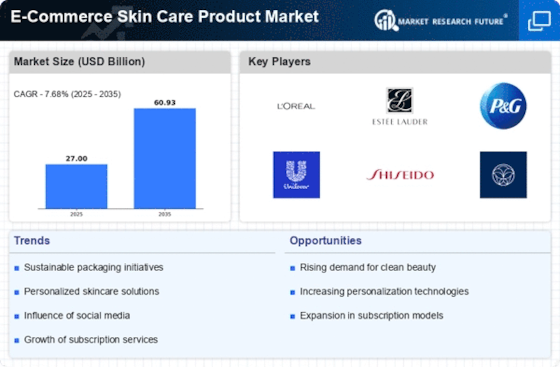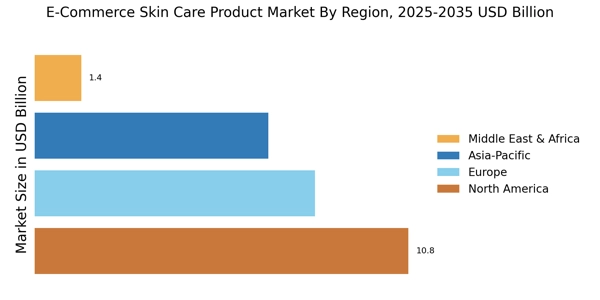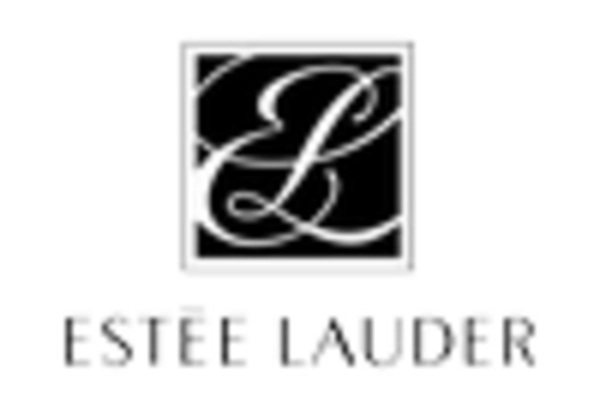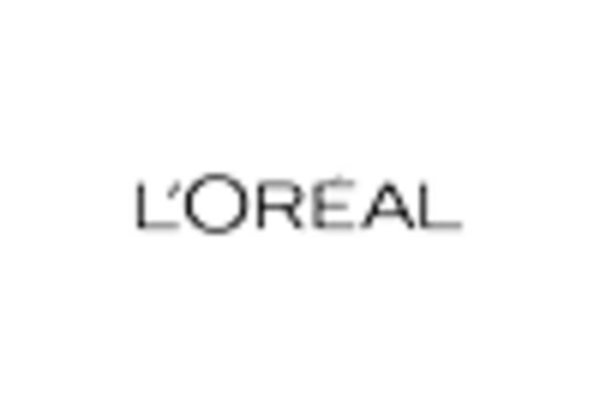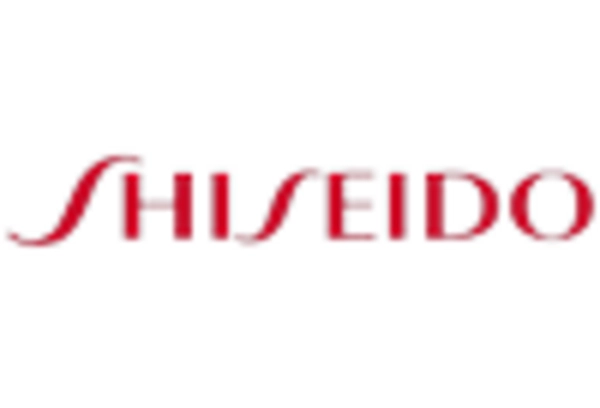Rise of Subscription-Based Models
The E-Commerce Skin Care Product Market is experiencing a rise in subscription-based models, which offer consumers a convenient way to receive their favorite products regularly. This model not only enhances customer retention but also provides brands with predictable revenue streams. Recent data suggests that subscription services in the beauty sector have grown by approximately 40% in the past year. Consumers appreciate the personalized experience that these services offer, often receiving tailored product selections based on their individual skincare needs. This trend indicates a shift towards a more customer-centric approach in the E-Commerce Skin Care Product Market, where brands are increasingly focused on delivering value and convenience to their consumers.
Increased Online Shopping Adoption
The E-Commerce Skin Care Product Market is experiencing a notable surge in online shopping adoption. As consumers increasingly prefer the convenience of purchasing products from home, the market is projected to grow significantly. Recent data indicates that e-commerce sales in the beauty sector have risen by approximately 25% in the last year alone. This trend is likely driven by the proliferation of smartphones and improved internet access, enabling consumers to browse and purchase skincare products with ease. Furthermore, the rise of subscription services and direct-to-consumer models has transformed the purchasing landscape, allowing brands to engage directly with their customers. This shift not only enhances customer loyalty but also provides valuable insights into consumer preferences, thereby driving innovation within the E-Commerce Skin Care Product Market.
Influence of Social Media Marketing
The E-Commerce Skin Care Product Market is significantly influenced by social media marketing strategies. Platforms such as Instagram and TikTok have become essential tools for brands to reach their target audiences. Recent statistics indicate that over 70% of consumers are influenced by social media when making skincare purchases. This trend highlights the importance of engaging content, influencer partnerships, and user-generated reviews in shaping consumer perceptions. Brands that effectively leverage social media can enhance their visibility and drive sales, as consumers increasingly seek recommendations from trusted sources. Consequently, the E-Commerce Skin Care Product Market is evolving to incorporate innovative marketing strategies that resonate with the digital-savvy consumer, thereby fostering brand loyalty and increasing market share.
Growing Demand for Natural Ingredients
The E-Commerce Skin Care Product Market is witnessing a growing demand for products featuring natural and organic ingredients. Consumers are increasingly becoming aware of the potential harmful effects of synthetic chemicals, leading to a shift towards cleaner formulations. Market Research Future suggests that products labeled as 'natural' or 'organic' are experiencing a sales increase of around 30% compared to traditional skincare products. This trend is further fueled by the rise of health-conscious consumers who prioritize sustainability and ethical sourcing. Brands that emphasize transparency in their ingredient lists and production processes are likely to gain a competitive edge. As a result, the E-Commerce Skin Care Product Market is adapting to meet these consumer preferences, leading to a proliferation of new product lines that cater to this demand.
Technological Advancements in E-Commerce
The E-Commerce Skin Care Product Market is benefiting from rapid technological advancements that enhance the online shopping experience. Innovations such as augmented reality (AR) and artificial intelligence (AI) are transforming how consumers interact with skincare products online. For instance, AR technology allows customers to virtually try on products before purchasing, thereby reducing the likelihood of returns. Additionally, AI-driven algorithms can provide personalized product recommendations based on consumer behavior and preferences. These advancements are likely to improve customer satisfaction and drive sales, as they create a more engaging and tailored shopping experience. As technology continues to evolve, the E-Commerce Skin Care Product Market is poised to adapt and thrive in this dynamic environment.


